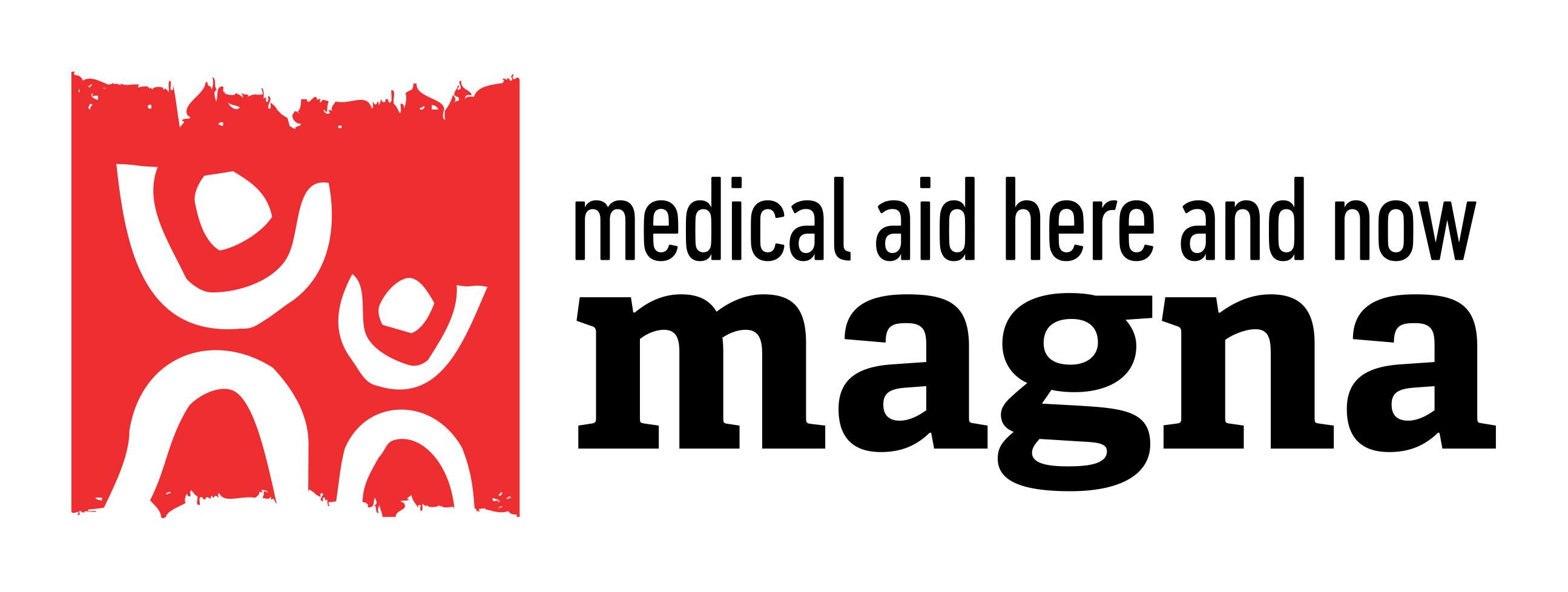Sophie Demay, „Even when a small part of world is in danger, the entire world is in danger."
Every year on August 19 we commemorate the World Humanitarian Day. We pay tribute to all humanitarian workers who risk their lives and seek to ensure that people in crisis areas, conflicts and disasters receive help and support. There are more than 130 million of people in the world who need humanitarian assistance to survive.
Over the course of past 15 years MAGNA has been helping through its humanitarian projects in all the major humanitarian crises, especially in the field of health care. We have more than 500 workers in the field. One of them is Sophie Demay. She was born in France and she has been working in humanitarian field for 18 years. She has lived at three continents and currently she coordinates MAGNA mission in the Democratic Republic of Congo.
Do you remember when and why did you decide to work as a humanitarian worker?
In France, I worked in the social sphere, and after 15 years I started to look for a new challenge. I felt attracted by and actually that’s what I still find fulfilling about my work till present days – to belong to a network that is actively involved in improving the living conditions of people in vulnerable areas of the world.
From your point of view, which are three major humanitarian problems? What influences the choice of missions in which you participate?
If I name three: Sexual and gender-based violence (SGBV), water supplies and health infrastructure weakness. That is why I work with MAGNA in DR Congo. We implement two SGBV projects there, nutritional program that runs in 22 health centres and this year we have launched a new project to promote maternal and child health. I identify with MAGNA’s principles, as a humanitarian organization MAGNA has long-term experience with the field operations in several countries and emphasizes the integration of local people and national institutions in its medical programs. This leads to long-term sustainability and continuity of the projects. I believe that this is the way to improve the lives of people in vulnerable communities in the long term.
How do you perceive the need for humanitarian assistance in the world?
Today all people are linked. Every policy decidedanywhere in the world affects not only the community which is directly impacted, but also the whole societies, groups that are linked with each other in some way. When one part in the world is in danger, the entire world is in danger. Moreover humanitarian assistance is a kind of redistribution from rich part to poorest or more unlucky ones. From a very personal point of view I cannot stand in front of a mirror without contributing even as little as I do, to enhance well-being of people in need.
What is the most difficult aspect of humanitarian worker?
We often have to interact with people, institutions and organizations who are facing their own problems and then finding cooperation can be considerably challenging.
Is it possible to do this kind of job as lifelong career?
It is surely possible, but it’s difficult. A few years ago I felt that I need some time off. At that time, I had managed to find a job in another field to refresh my motivation to continue.This work is demanding. Frequent changes of countries and being on call 24/7 also affect personal lives.
How do friends and family feel about your career?
I am in touch with my friends, but we manage to meet only once a year in better case. My family has got use to the fact that I miss all family events, even the most important ones. I am lucky, I met a man who also works in developing countries. Now it’s been six years since we got married. J Before I met him any normal relationship seemed to be impossible.
What were your beginnings in the field?
In the very beginning of my work in the humanitarian sphere I had to face unsatisfied beneficiaries in the Sahrawi refugee camps.From my point of view it was very unfair: I spent so much energy and time in order to achieve some results and they didn’t even recognize a small improvement. I remember going for a two hours walk in the desert to clean my head. Today I understand it much better, and I face these kind of attitude with much more serenity. It’s part of my job.
At which point you feel the strongest that your work make sense?
When people who receive our help, eventually learn to find their own way to cope with a given problem. Then I see that our work is meaningful.
MAGNA is Slovak humanitarian organization that aims to provide medical and nutritional assistance in humanitarian disasters, conflicts and communities. We treat children and their families where they need it the most – in the field, at the very place of need we work to save lives. Doctors and health workers not only from Slovakia, but also medical personnel of different nationalities cooperate with us. Over 500 of them work with our projects worldwide. During 15 years of its existence MAGNA has provided medical assistance at four continents – in countries such as Nepal, South Sudan, Kenya, the Kenyan-Somali border, Democratic Republic of Congo, Cambodia, Myanmar, Vietnam, Philippines, Haiti, Nicaragua, India, the Hungaria-Serbian border, Croatia, Lebanon and Syria.
